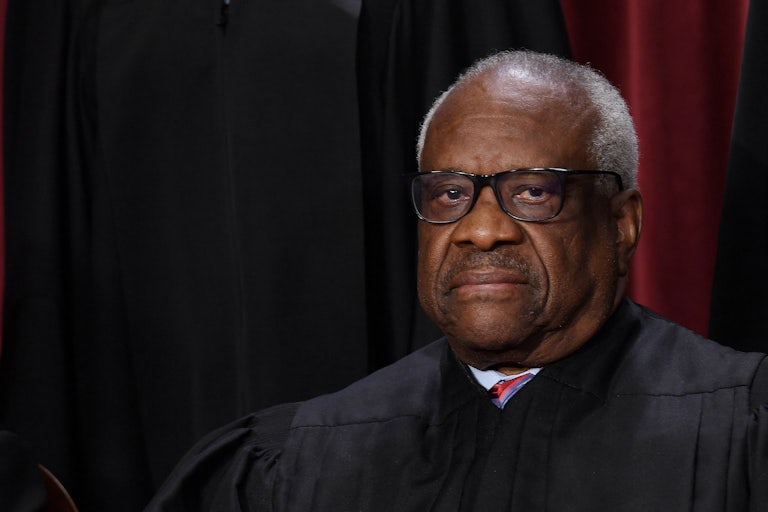Only Defense of the Ten Commandments Law Just Imploded Spectacularly
Louisiana Republican Representative Lauren Ventrella failed miserably to defend the law she co-authored.

The co-author of a bill mandating that the Ten Commandments be displayed inside public school classrooms in Louisiana took to cable news for her victory lap after the measure was signed into law. Needless to say, her justifications for the blatant violation of religious freedom crumbled under the most basic scrutiny.
On two different CNN programs, Louisiana state Representative Lauren Ventrella trotted out the same defense. “Boris, I bet you CNN pays you a lot of money, and I bet you’ve got a bunch of dollar bills in that wallet,” she told anchor Boris Sanchez, who was floored by her apparent non sequitur. “I got a dollar bill in my wallet. ‘In God We Trust’ is written on that dollar. It is not forcing anybody to believe one viewpoint; it’s merely posting a historical reference on the wall.”
CNN's Boris Sanchez: “Do you also recognize that the Constitution ... doesn't include the word 'God,' or 'Jesus,' or 'Christianity'?”
— The Recount (@therecount) June 20, 2024
Louisiana State Rep. Lauren Ventrella (R), who co-authored Ten Commandments in public schools bill: “I bet you CNN pays you a lot of money.” pic.twitter.com/Ers64WINLt
When Sanchez pointed out Ventrella’s ahistoricism, she retreated into crime-wave fearmongering: “This nation has gotten out of hand, with crime, with the bad, negative things that are going on. Why is it so preposterous that we would want our students to have the option to have some good principles instilled in them?” she said.
Sanchez asked what she would tell parents, students, and teachers of different faiths who objected to the commandments’ mandatory classroom presence, and Ventrella’s mask slipped. “Don’t look at it,” she replied.
CNN's Boris Sanchez: “What do you say to the parents of students, or even teachers, who don't share your religious views?”
— The Recount (@therecount) June 20, 2024
Louisiana State Rep. Lauren Ventrella (R), who co-authored a bill that requires the Ten Commandments be displayed in public schools: “Don't look at it.” pic.twitter.com/RxD5UXBApj
The Republican lawmaker repeated her dollar bill argument during an interview with Abby Phillip Thursday night. “Look, ‘In God We Trust’ is on the dollar bill. If I had one right, I’d show you,” she said.
Phillip reminded Ventrella that the phrase did not appear on dollar bills until the 1950s and does not represent an original document comparable to the Constitution, from which references to God are absent.
“Well, it’s still on our dollar bill, no matter how you want to look at it,” Ventrella shot back.
Ventrella: in god we trust is on the dollar bill. If it had one right now, I'd show you
— Acyn (@Acyn) June 21, 2024
Phillip: In god we trust was put on the dollar bill in the 50s…. that's not a great argument.
Ventrella: Well, it's still on our dollar bill no matter how you want to look at pic.twitter.com/Uk1DvMEpOP
Ventrella then laid bare the mechanisms by which Christian nationalists, cloaked in religious liberty and “good principles,” hope to install their broadly unpopular agenda. “You have to remember,” she told Phillip, “this is a new bench.”
“The Lemon decision was completely different. Now, it is a different bench,” she said, referring to a previous Supreme Court precedent that banned religious displays in publicly funded schools—and blatantly rejecting the very idea of precedent.
Ventrella: You have to remember this is a new bench.
— Acyn (@Acyn) June 21, 2024
Phillip: So, you're talking about the Supreme Court, is that what you're referring to?
Ventrella: That's correct. pic.twitter.com/DJQnEnBfls
Minoritarian institutions like the conservative-majority Supreme Court and Fifth Circuit Court of Appeals have been shown to dispense with precedent when conservative lawmakers knowingly bring unconstitutional laws up through the courts until they find a friendly one. Ventrella, after struggling to articulate a convincing alternative defense, just gave away the game.









